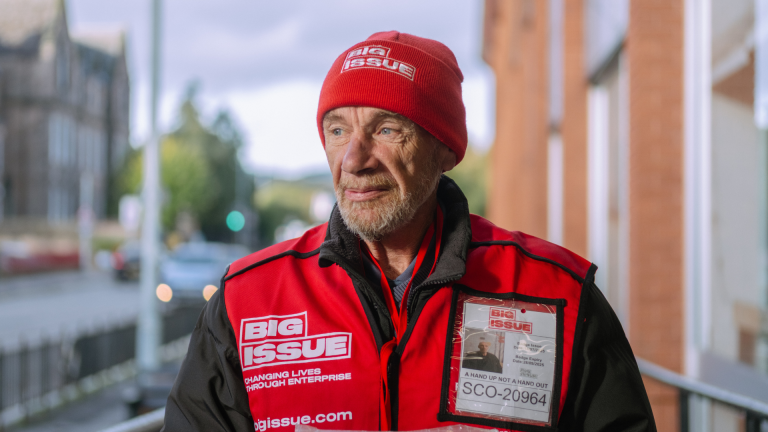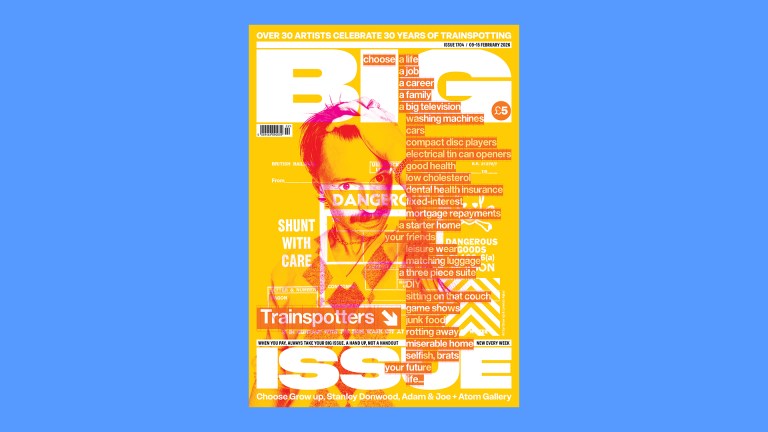The Big Issue’s work spans five key impact pillars to dismantle poverty and one of the most important is health and wellbeing. The Kings Fund reported that 49% of individuals in the most deprived areas are reporting the detrimental effects of the cost-of-living squeeze on their physical health, compared to 27% in less deprived areas. Poverty significantly impacts health outcomes, resulting in increased illness, reduced access to healthcare, and reduced life expectancy. In 2023 the Big Issue’s national support service worked with 542 individuals to provide health and wellbeing services.
Helen, a vendor support worker in Bournemouth, provides insight into their holistic approach to tackling health disparities, energy poverty, and other critical issues faced by Big Issue vendors and other people affected by poverty.
Comprehensive health and wellbeing assessments
A key aspect of Helen’s role involves conducting thorough health and wellbeing assessments with each vendor. “We start by asking about housing, GP registration, dental and optical care, and any mental or physical health issues,” she says. These assessments are not one-off events but part of an ongoing dialogue. “We review these questions at different points to track progress and address new issues as they arise.”
This approach allows Helen and her colleagues to tailor their support to the individual needs of each vendor. “Sometimes, it’s about relationship building,” Helen notes. “You might not hear the big issues immediately, but over time, through small interactions and trust-building, they begin to open up.”
Fuel, energy and welfare support: A lifeline for the vulnerable
Helen highlighted the crucial role of fuel and energy support through Big Issue’s partnerships with the Fuel Bank Foundation and the British Gas Energy Trust. These organisations work with the Big Issue to fund vouchers to help individuals manage their bills, a service that can be a lifeline, particularly for those on prepayment meters.
“We can generally give out vouchers about ten days apart, but no more than three within six months,” Helen explains. “These vouchers are limited to those on prepayment meters, and over the winter, there’s been a lot of requests, where people have just been finding it really difficult to keep up with payments.”









